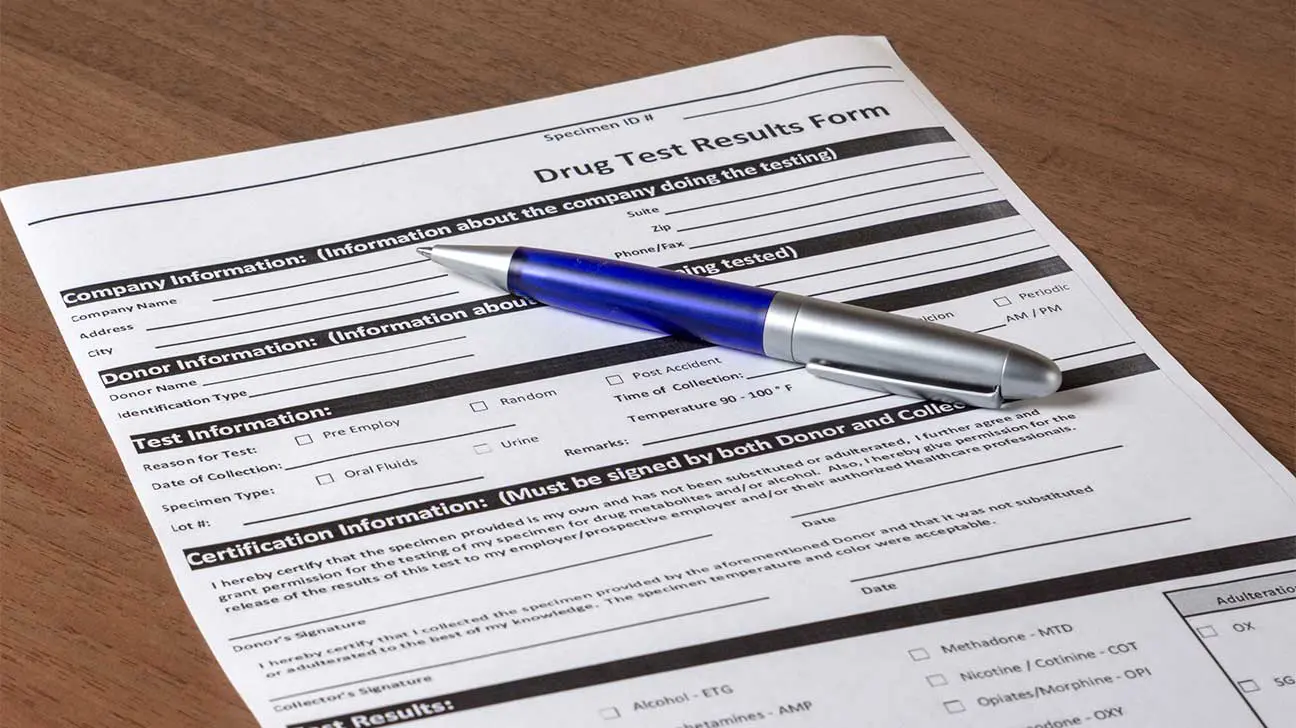
Cocaine, also known as crack, is an addictive stimulant that is used by millions of people in the United States each year.
A common concern of people who use crack cocaine is if and for how long their drug use will show up in a drug test. There are many ways that crack cocaine use can be detected.
Drug tests used to screen for crack cocaine use include:
- urine tests
- blood tests
- oral fluid tests (e.g. saliva)
- hair follicle tests
Crack cocaine can remain detectable in the body for anywhere from a few minutes to three months after use, depending on the type of drug screening used to detect illicit substance use.
Crack Cocaine Detection Times
Drug detection times refer to the length of time crack cocaine can be detected in a person’s system and therefore be identified in a drug test.
Average crack cocaine detection times, by drug testing method:
- urine tests: one to seven days
- blood tests: up to 24 hours
- saliva tests: up to two days
- hair tests: up to 90 days
How Long Crack Cocaine Remains In Urine
Crack cocaine use can be detected in urine samples for anywhere from one to seven days after your last use. This time-frame will depend on how much cocaine was used and other factors.
Learn more about detecting crack cocaine in urine
How Long Crack Cocaine Remains In Blood
Crack cocaine can be detected in the blood for a shorter window of time than urine. On average, crack will remain in the blood for up to 24 hours.
Learn more about detecting crack cocaine in blood
How Long Crack Cocaine Remains In Saliva
Oral fluids, like saliva, can be tested for drug use. Crack cocaine may be detectable in oral fluids for up to 48 hours. This is the maximum length of time, on average.
How Long Crack Cocaine Remains In Hair
Crack use can be detected through an analysis of hair follicles for up to 90 days, or three months, after last use. Hair testing has the longest detection window of any other drug test.
Learn more about detecting crack cocaine in hair
What Factors Can Affect How Long Crack Cocaine Stays In Your System?
Average detection times for crack cocaine don’t apply to everyone.
There are a wide range of factors that can shorten or lengthen the amount of time you can get a positive result for crack cocaine use.
Factors that can affect how long cocaine stays in your system:
- Amount of crack use: Using large amounts of crack, or going on a cocaine binge, can result in longer detection times.
- Frequency of use: Being a heavy user or frequent user of crack can cause longer detection times.
- Overall health status: Having a slow metabolism or co-occurring health conditions can affect how long it takes for the body to rid itself of cocaine and cocaine metabolites.
- Polydrug abuse: Taking multiple drugs (e.g. opioids, alcohol) with crack can affect how long it takes for the body to metabolize the drug.
- Body composition: Weight, height, and body fat percentage can affect how long crack will remain detectable in the body.
How To Get Crack Cocaine Out Of Your System
The only way to get crack cocaine out of your system is to stop using cocaine. Physical dependence and addiction to crack can complicate this.
People who are addicted to crack will have a hard time quitting it long enough to get a negative test result.
This is because cocaine can be psychologically addictive and can cause uncomfortable withdrawal symptoms in those who go more than a few hours without taking more.
Cocaine Detox
Beginning a detox program is the safest and most effective way to stop using crack cocaine. This can help the body rid itself of crack.
Detox programs can also offer medical supervision, treatment for withdrawal, and connect people to an inpatient or outpatient treatment program.
Getting Help For Crack Cocaine Addiction
Cocaine addiction can dramatically affect how a person thinks, feels, looks, and behaves.
If you or someone you know is addicted to crack, the best way to stop using crack cocaine is to seek professional treatment.
Treatment for crack cocaine abuse and addiction can include:
- behavioral therapies
- medication
- support groups
- sober living or therapeutic communities
Overcoming an addiction to crack is possible. It’s never too soon or too late to seek help.
If you or a loved one is using crack, our addiction specialists can help explain your treatment options. Call our helpline today to find cocaine addiction treatment near you.
Addiction Resource aims to provide only the most current, accurate information in regards to addiction and addiction treatment, which means we only reference the most credible sources available.
These include peer-reviewed journals, government entities and academic institutions, and leaders in addiction healthcare and advocacy. Learn more about how we safeguard our content by viewing our editorial policy.
- Redwood Toxicology Laboratory—Laboratory Testing Reference Guide
https://supremecourt.nebraska.gov/sites/default/files/Programs/CIP/events/redwood/LAB_Reference_Guide.pdf - Substance Abuse and Mental Health Services Administration (SAMHSA)—Key Substance Use and Mental Health Indicators NSDUH 2019 Results
https://www.samhsa.gov/data/sites/default/files/reports/rpt29393/2019NSDUHFFRPDFWHTML/2019NSDUHFFR1PDFW090120.pdf - U.S. National Institute on Drug Abuse (NIDA)—Cocaine Research Report
https://www.drugabuse.gov/publications/research-reports/cocaine/what-cocaine - U.S. National Library of Medicine: PubMed—Determination of cocaine, metabolites and a crack cocaine biomarker in whole blood by liquid-liquid extraction and UHPLC-MS/MS
https://pubmed.ncbi.nlm.nih.gov/29885489/


